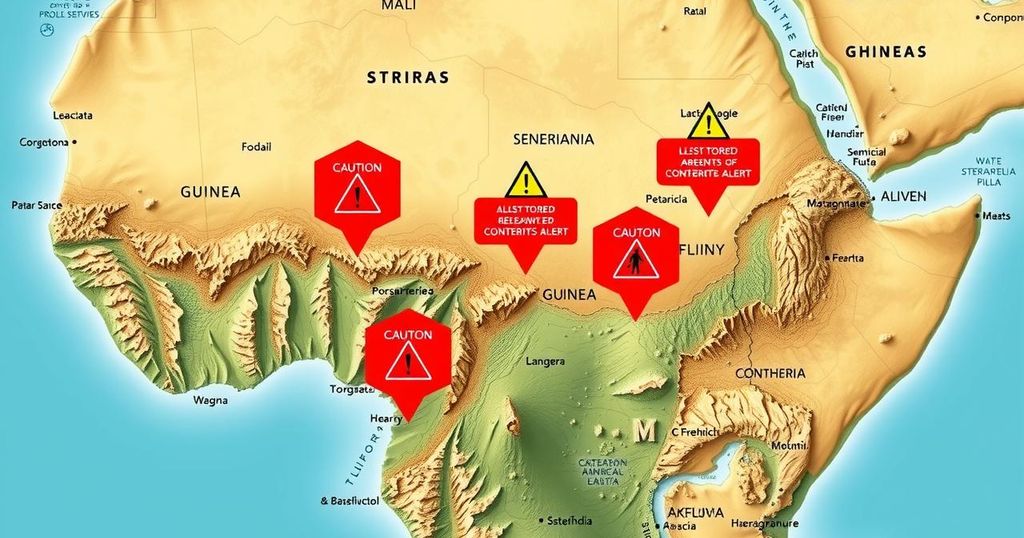Impact of Deteriorating Security in Mali on Border Areas of Mauritania, Senegal, and Guinea

The deteriorating security in Mali significantly affects border areas in Mauritania, Senegal, and Guinea. Between July and October 2024, 97% of localities in Tombouctou and 73% in Ségou reported shocks from insecurity, flooding, and price increases. This led to population displacement, mainly within the region, with some areas experiencing over 50% of their populations moving.
The security situation in Mali is gravely impacting its border regions, particularly evident in recent assessments conducted by REACH’s Humanitarian Situation Monitoring in the Central Sahel. Analysis from July to October 2024 indicated that 97 percent of localities in Tombouctou and 73 percent in Ségou experienced shocks related to insecurity, violence, and looting. In Goundam and Gourma-Rharous, every surveyed locality was affected, with 97 percent of localities in Niafunké also reporting adverse conditions.
In addition to insecurity, flooding has emerged as a significant threat, with 72 percent of localities in Tombouctou and 62 percent in Ségou reporting impacts. A sudden increase in basic market prices also affected a notable portion, with 58 percent of Tombouctou localities and 43 percent in Ségou experiencing this challenge. These factors have led to heightened stress in these communities.
Displacement has become prevalent as key informants noted that 34 percent of localities in Tombouctou and 23 percent in Ségou reported population movements. Predominantly, displacement occurred within the region, although the extent varied. In Ségou, 24 percent of localities registered displacements exceeding 50 percent of their populations. Such demographic shifts have significant implications for regional stability and humanitarian needs.
The deteriorating security situation in Mali has led to extensive distress across border areas, particularly in Tombouctou and Ségou. Insecurity and violence have been pervasive, compounded by flooding and rising market prices, leading to substantial localized displacement. These conditions not only threaten the stability of the affected communities but also amplify the humanitarian challenges faced in the region.
Original Source: www.unocha.org








